‘Special ambassadors’ who cultivate Vietnam – Japan friendship
VNF - In Hue city, there are many women in special circumstances, someone teaches foreign language, someone works as craftsmen but they have in common being “ambassadors” for Vietnam – Japan friendship.
Wheelchair bound teacher of Japanese
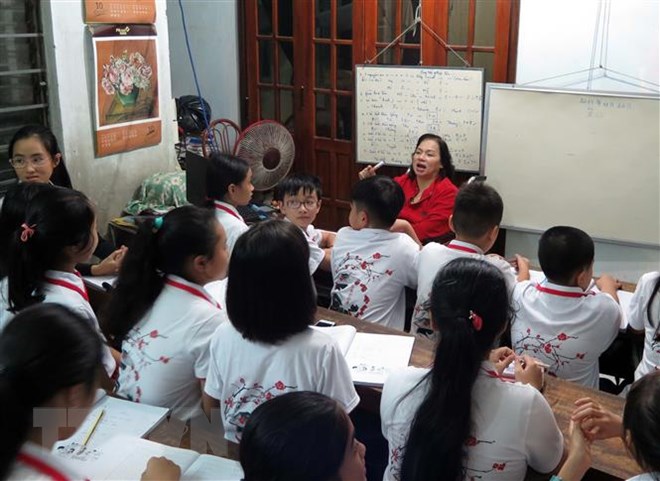
Famous teacher in Hue city Tran Phuong Lien. (Photo: Quoc Viet / TTXVN)
First to mention Mrs. Tran Phuong Lien, 60 years old, a wheelchair-bound woman prestige in teaching Japanese in Hue city.
For over 25 years the woman has turned her small home into a Japanese language center. Currently she is a member of the Executive Board of Vietnam – Japan Friendship Association in Thue Thien-Hue province.
On Christmas Eve 2018, the small room of teacher Lien at 75 Ben Nghe street, Phu Hoi ward, Hue city is crowded by her students.
Sitting on the wheelchair, Lien held a microphone, holding a chalk writing on the board a new word, reading it for students to intimate. Sometimes, she knocked the ruler down on the table, creating a rhythm for students to spell.
Her students include many ages, some in grade 3,4; some junior school, high school; some university students; some about to study in Japan.
Dinh Thi Phuong Hoai, a resident doctor at Hue University of Medicine and Pharmacy, is studying Japanese at Lien's class to prepare for a professional training in Japan. Hoai said, Lien is both a teacher and a gentle mother, giving her wholehearted advice.
She often took the wheelchair to each table to teach students. She always smiles despite being soaked with sweat. Besides Japanese, the children also learn from her the determination to get ahead in life.
When every session ended, the students stood up and greeted Mrs. Lien in Japanese and hurriedly left. Mrs. Lien rolled around the wheelchairs, packed up the waste paper to prepare for the next shift.
Just like that, for over 25 years, thousands of students have come to the classroom. They are equipped with the necessary knowledge to enter their life.
Nguyen Dang Thanh, a student attending Lien’s class during his 6-12 grade, now working in Japan, just returned to visit her for Christmas. Thanh said, thanks to the knowledge learned from Lien, he could communicate smoothly when in Japan.
To have happiness as now, Lien had to go through many tough time. She was born in Hai Phong but had a parent of Hue origin. She grown up in Hanoi.
When she was 4 years old, her legs were paralyzed after a long illness. As the country unified, she followed her parents to Hue to study and graduate from Dong Khanh School (now Hai Ba Trung High School).
Though difficult to travel, Lien became a student of the Faculty of Literature and History, Hue University and graduated in 1981.
Tran Phuong Lien said that when she was a child living in the North, she fell in love with the song broadcast on Radio Voice of Vietnam titled "Sen shawa ugoke nai" (Stop the fight) by singer Yokoi Kumicko (Japanese).
Later on she known that, not only sang on Radio Voice of Vietnam, but singer Yokoi Kumicko also went to the North and Hanoi capital singing for Vietnam soldiers and fellow citizens.
Singer Yokoi Kumicko was awarded the Medal for Friendship and Peace by Prime Minister Pham Van Dong. Later, when having a little Japanese language, and having the opportunity to come to Japan Tran Phuong Lien met singer Yokoi Kumicko and they have been friends until now.
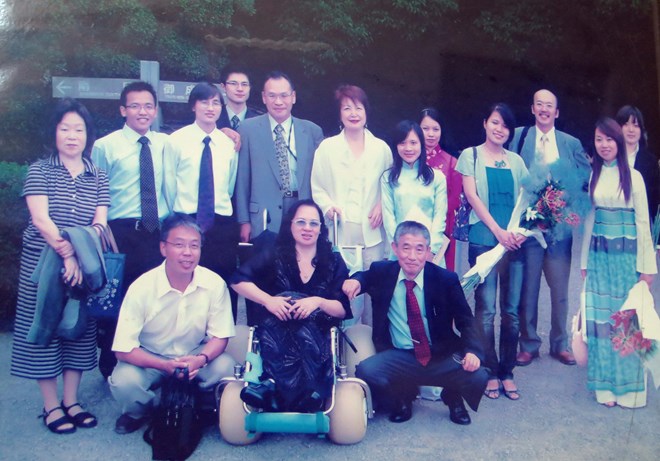
Yokoi Kumicko, a Japanese singer (back row, sixth from left), takes pictures with Lien. (Source: Vietnam +)
Flipping through old photos, the past rushing back, Lien recounted the turning point of her life was in 1993 when she heard a Japanese class was recruiting students. She diligently studied and applied for registration. However, because of her disabled legs, she gave up and returned to the sidewalk business.
Sometime later, two Japanese people came to her house to ask why she did not go to class any more. Knowing how difficult it was for her to travel, the Japanese teachers voluntarily took turns to her home to teach.
After two years, the course ended, she actively contacted her teachers in Japan to continue accumulating and perfecting the foreign language. In 1996, Mrs. Lien learned and translated books, letters ... from Japanese into Vietnamese.
In addition, she also tutors several students who need to learn Japanese. The rumors go far away, thanks to good teaching skills, her class is getting bigger and bigger.
Mrs. Lien's extraordinary energy and vast knowledge were known to the Japanese. Many Japanese who come to Vietnam to work and live have come to Mrs. Lien's class to study Vietnamese as well as Hue culture and Vietnamese culture.
Her Japanese class has become a trademark for students in and outside the province. She also contributed greatly to bringing Hue culture, Vietnamese culture to Japanese people and vice versa.
The handicapped girl brought Hue ‘non la’ to Japan for exhibition
That is Tran Thi Thuy, 40 years old.
Although in the period of conical hats often weakened before cloth caps and helmet, ‘non la Thuy’ not only developed but also reached far. The most impressive thing for Thuy was once she was honored to follow a delegation of Vietnamese enterprises to exhibit goods in Japan.
She said that if she did not pursue this career, she would never have the opportunity to go abroad. The happiest of the days in Japan is that she was able to perform her hat making.
Currently, ‘non la Thuy’ is not enough to consume. Customers come to her home to buy, mostly tourists, domestic and foreign. Most visitors are from France, England, America and Japan. They came here to buy a hat and see how it is made with their own eyes and admired the work she did.
In the tourist season or the festive season, Thuy has to hire skilled workers to help. Therefore, not only does she take care of herself, she also helps 5-10 workers, mostly women who have no jobs with a salary of VND 600,000-800,000 / month.
When born, Tran Thi Thuy had only one hand, the other hand amputated to the elbow. The handicapped child was often around, helping her mother in the work of hat making, from then on, her passion growed in her. At first, she took advantage of the excess products that her mother had removed to practice making hats, like "toys" for young children.
When she was 10 years old, Thuy made the first hat in the amazement of the whole family. Since then, she has followed this career as a destiny. Thuy's mother said that it is difficult work for a healthy person, let alone the person with one hand. The work for a hat maker, Thuy is proficient, from sewing needles, padding cones to have a complete product.
The first Japanese person becomes an honorary citizen of Hue City
That is teacher Michio Koyama. Having been in Hue for decades, Mr. Michio Koyama has only one desire that is to help street children, children with disabilities, Agent Orange infected for a better life. Before coming to Vietnam, he had been a teacher at Tokyo University for 23 years.
He used to participate in the movement of Japanese students to protest against the war in Vietnam before 1975. In 1992, coincidentally once traveling in central Vietnam, encountering many street children, children suffering the consequences of war ...he dreamed of doing something for them. In 1994, when he returned to Vietnam and then to Hue, he was determined to stay here to fulfill his wish.
On his first days in Hue, he participated in teaching Japanese at Hue University of Education, then asked the city government for a small piece of land to build a school.
He used his own money accumulated after 23 years of teaching and some donated by his friends to build the first 6 rooms of an orphaned house with a value of 20,000 USD. He received the first 20 children he found at the bridge to raise.
This place later, together with the support of JICA has developed to 3 blocks of high-rise buildings, becoming a cultural center with adequate accommodation, music, painting, computer classrooms, libraries, Japanese and English classrooms.
From the time he came to Hue, Michio Koyama has returned to Japan three times a year, organizing about 100 talks, including about 60 sessions for schools from elementary school to university, and 20 talks with Enterprises are planning to invest in Vietnam, the remaining 20 sessions are presentations for those who are interested in Vietnam to raise money for the development of the house for street children in Hue.
Currently, he has chaired the Japanese Association of Supporting Street Children (JASS).
VNF
Recommended
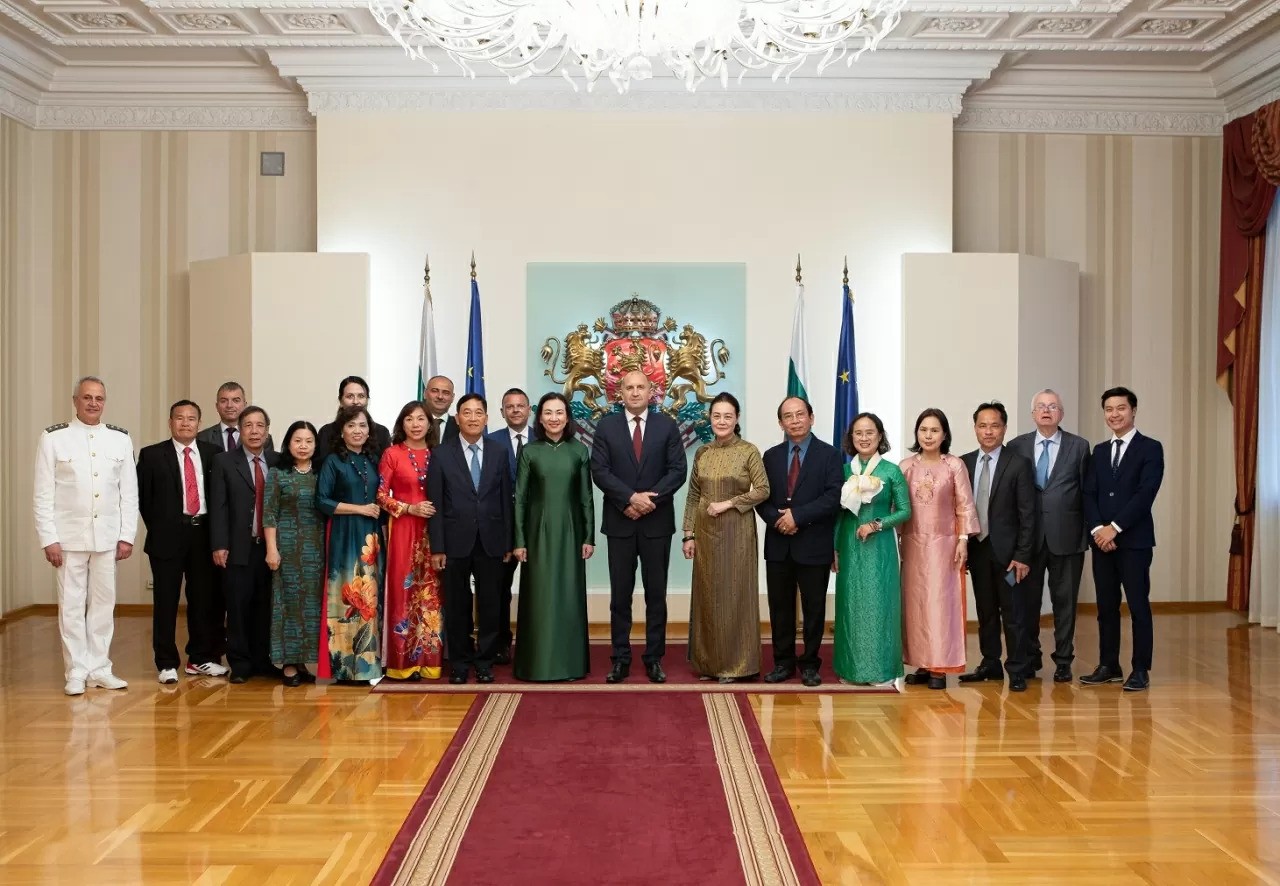 Friendship
Friendship
People-to-People Diplomacy: Sustainable Bridge of Vietnam-Bulgaria Friendship
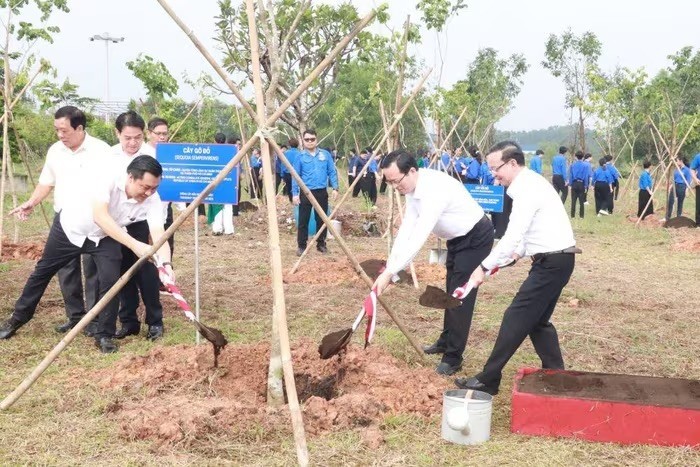 Friendship
Friendship
Binh Duong Hosts Tree Planting to Mark 75 Years of Vietnam-China Diplomatic Ties
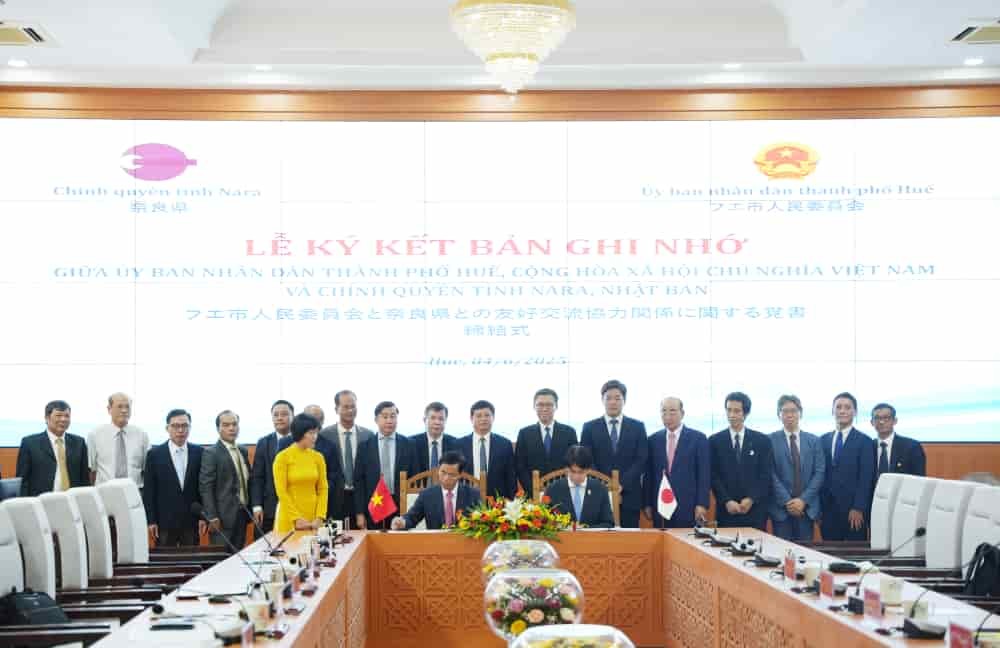 Friendship
Friendship
Hue, Nara Prefecture (Japan) Cooperate to Promote Cultural Heritage Values
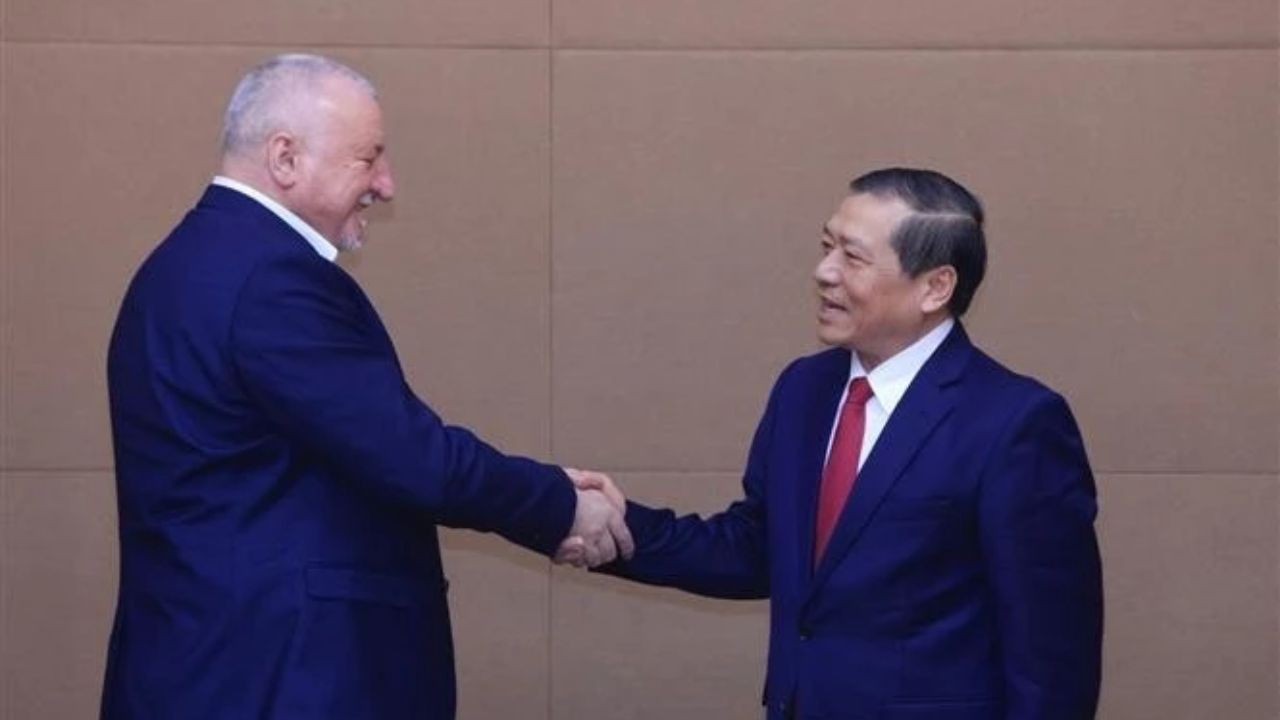 Friendship
Friendship
Strengthening Vietnam-Hungary Friendship
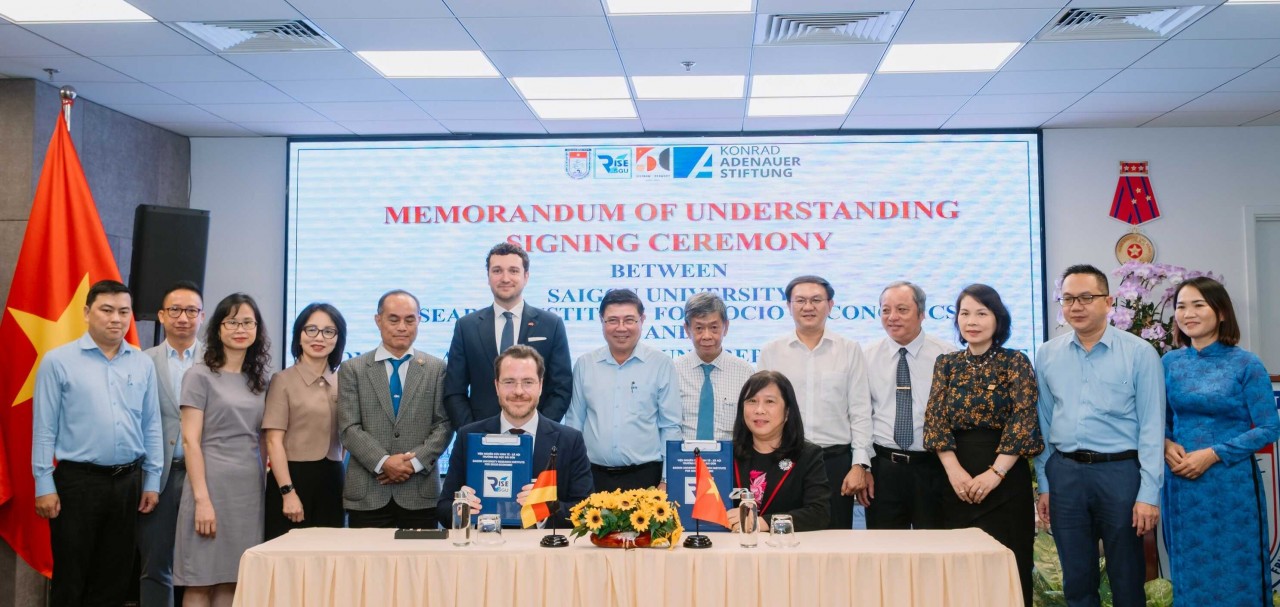 Friendship
Friendship
Another Vietnamese University Partners with Germany’s Konrad Adenauer Stiftung
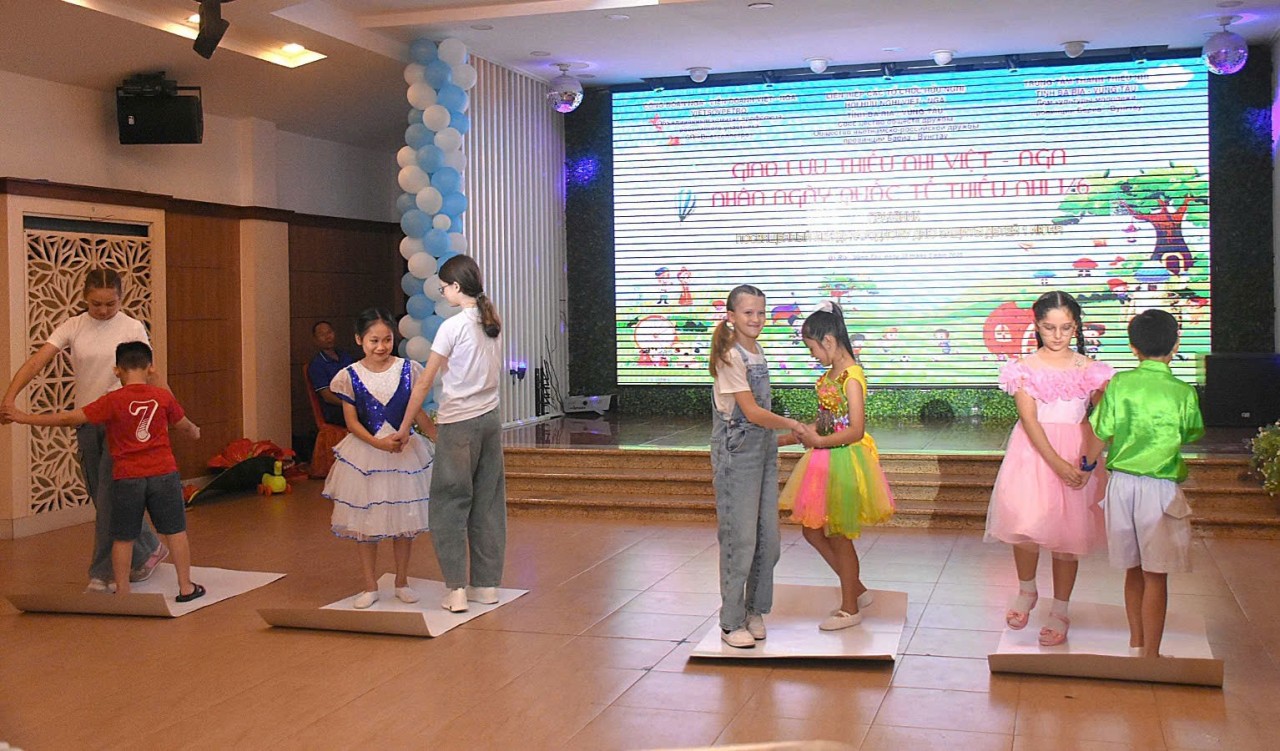 Friendship
Friendship
Over 200 Vietnamese and Russian Children Join “Red Scarf Of Friendship”
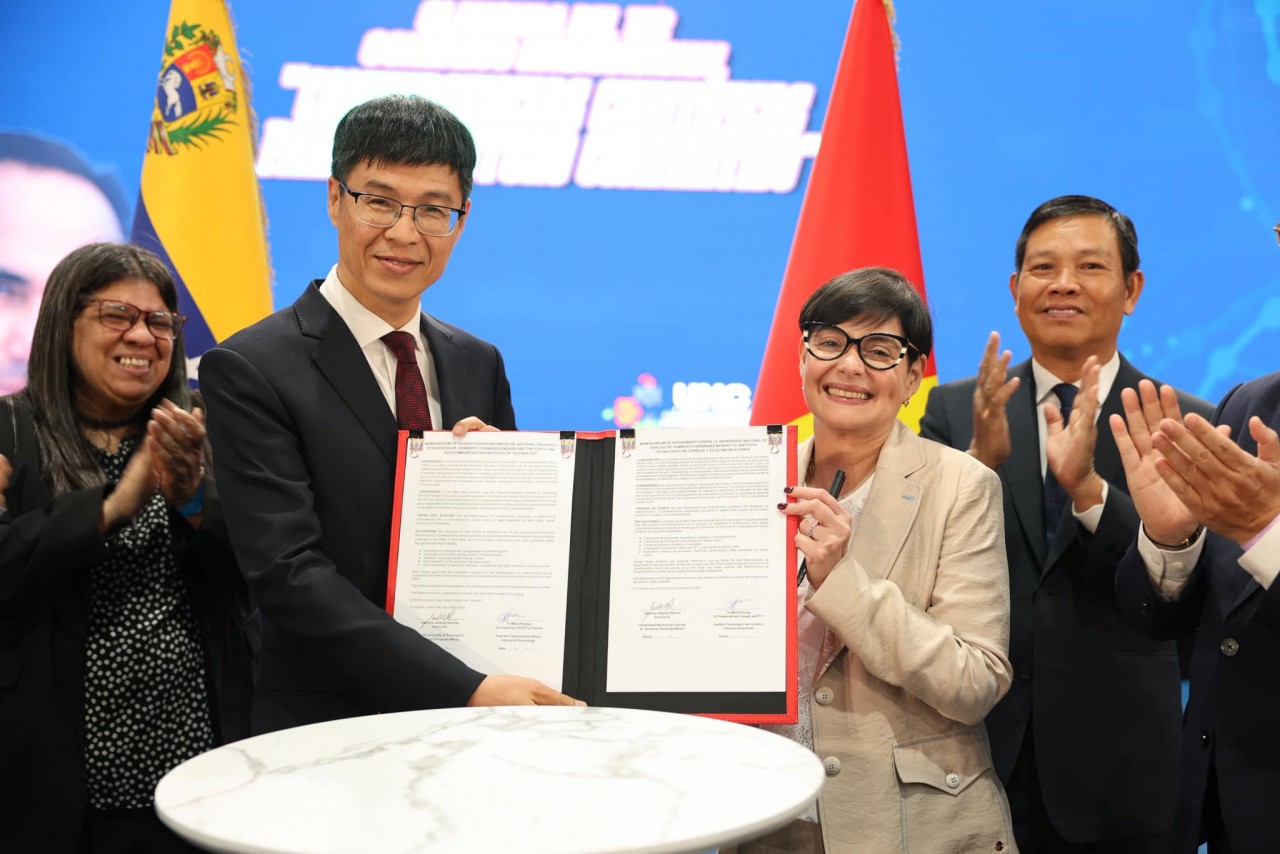 Friendship
Friendship
Venezuela Seeks Vietnam’s Expertise in Science and Technology
 Friendship
Friendship
